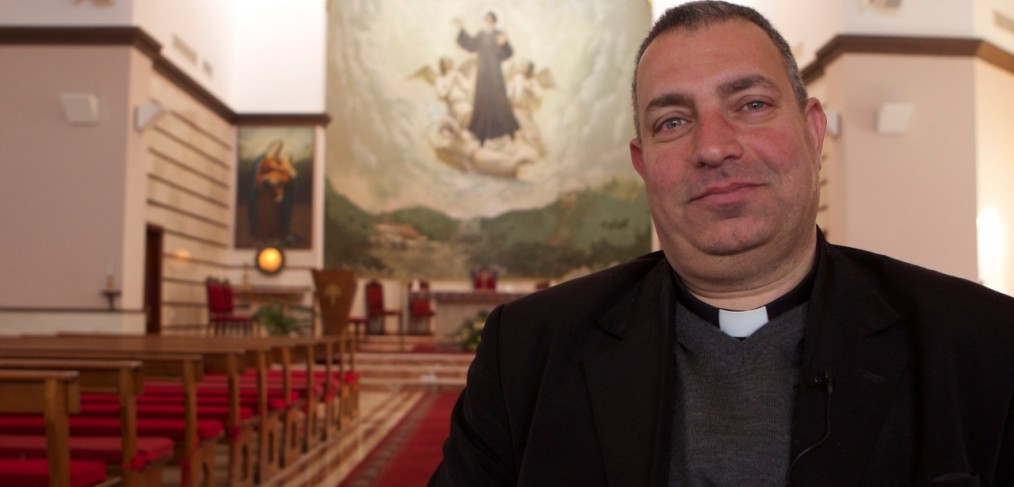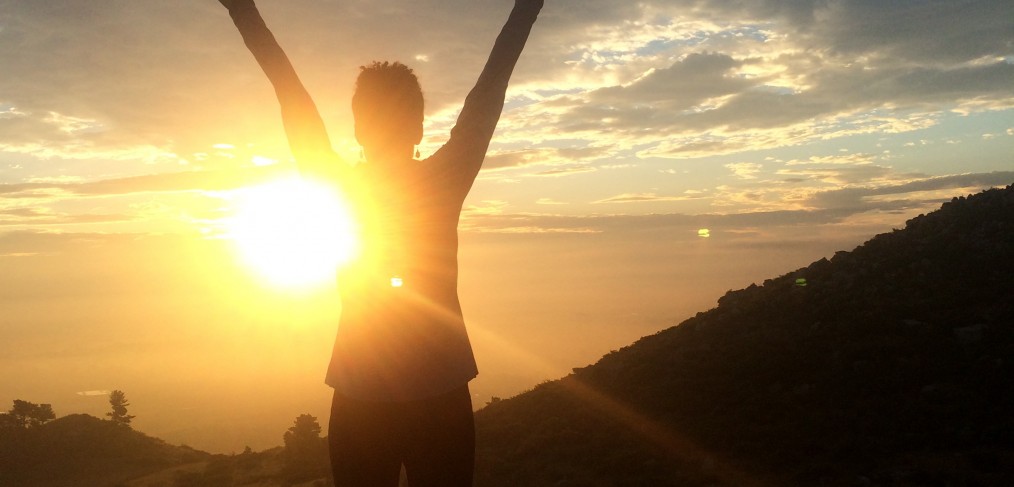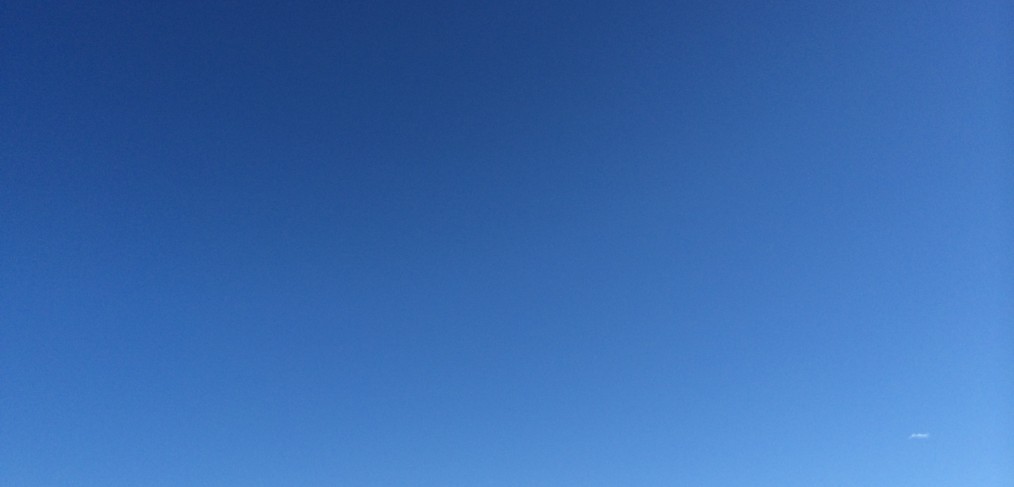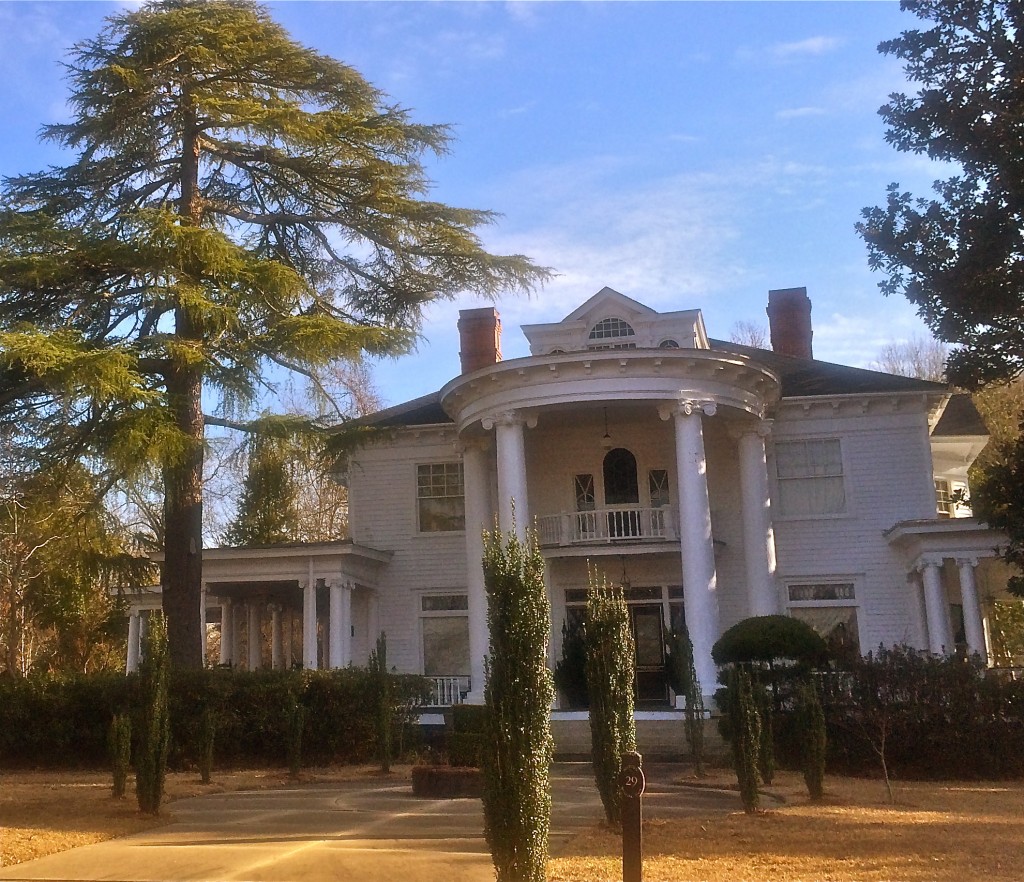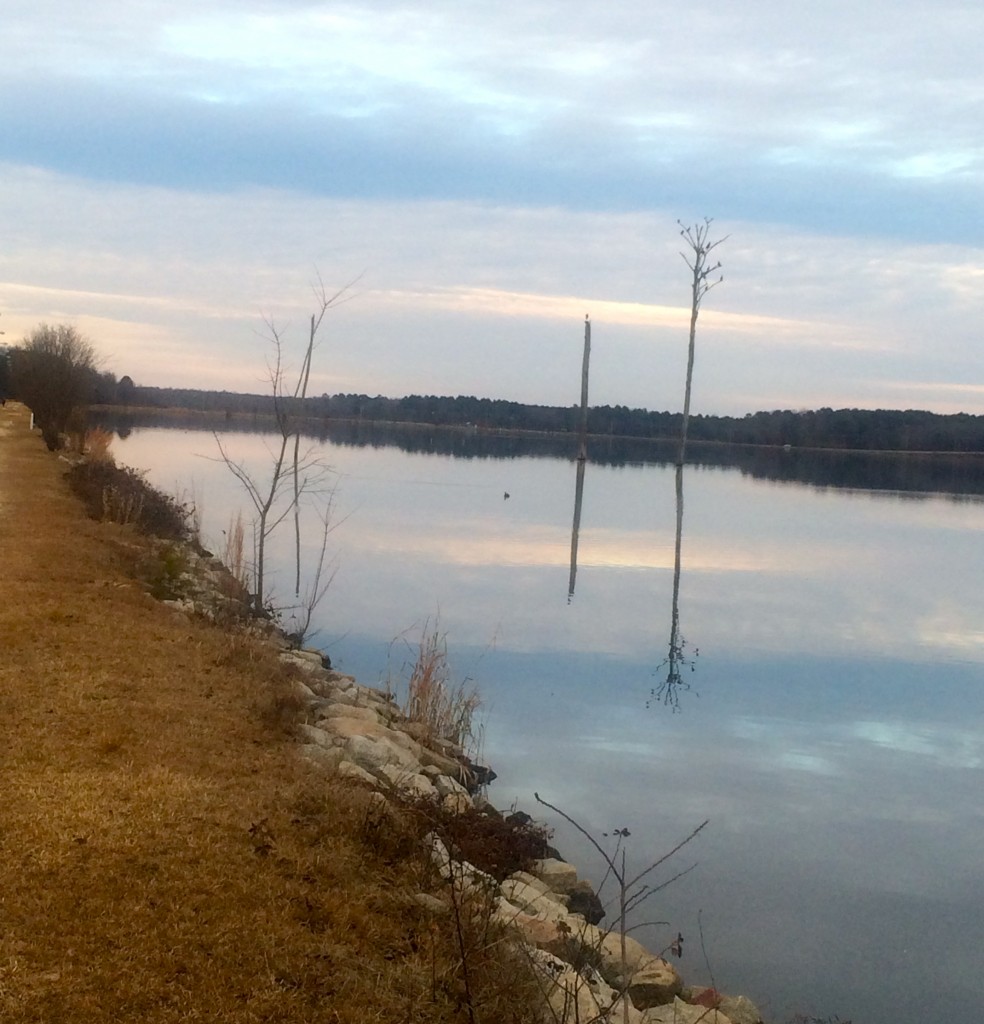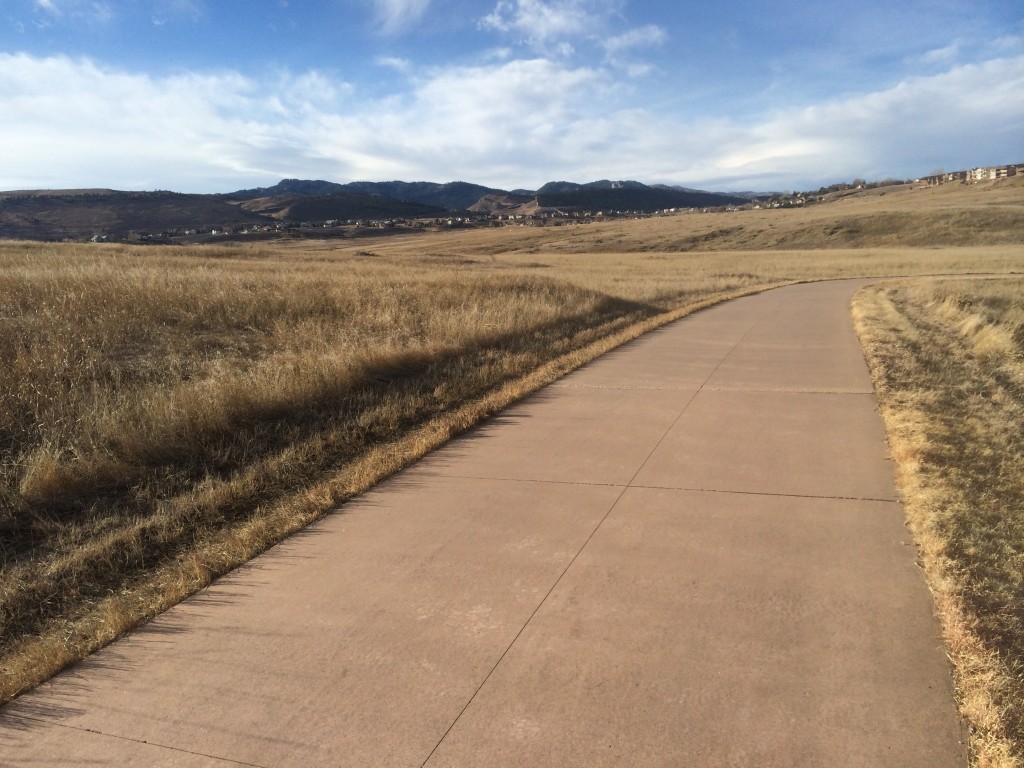This week I returned from the Middle East. I had the privilege to spend the past couple of weeks interviewing Iraqi and Syrian refugees in the region.
I steeled myself to hear story after story of bombings, death threats, and near-miss escapes with little children in tow. I indeed heard those gut-wrenching tales, but a stronger, more shaking theme emerged. It’s one that will mark my understanding of Easter for years to come…and one that I hope will stretch and enrich yours as well.
Here’s a glimpse of my interviews with Iraqi Christian refugees in Amman, Jordan.
There are approximately ten thousand Iraqi Christian refugees living in the city. I had the opportunity to spend a few days with Father Raymond Moussalli, the Patriarchal Vicar of the Chaldean Catholic Church in Jordan. He invited me to attend mass with a community of refugees from Mosul and the Valley of Nineveh that had recently been displaced by ISIS. Sixty of them are now living in a church in Amman. That is where I met Maryam and Najaf. (Note: the names of the refugees have been changed in order to protect identities.)
MARYAM
Maryam approaches me at mass with a smile that collects me up as family. Later that afternoon she serves as my host, introducing me to others living at the church. I had been concerned whether any of these refugees would be willing to share their stories, but from the moment I met Maryam I knew she wasn’t only willing, she felt compelled to bear witness to what she and her community had experienced. The next day I sit with Maryam for an extended interview.
Dark circles frame Maryam’s striking eyes; a wordless reminder that desperation and beauty coexist in powerful ways here. As we begin the interview she tells me she had a short night. Her oldest son struggles with sleep due to what he’s experienced from the bombings and persecution; her husband is having a hard time breathing these days; and she is pregnant, so nights can be difficult.
Yet, she and her family are safe. Only months ago they were fleeing for their lives when 42 tanks entered the Valley of Nineveh. Her hometown had been an epicenter for Christians and ancient churches and the stories of biblical renown.
Yet when ISIS came in threatening to do to the Christians what they had done to the Yazidis, they left in a terror.
Maryam’s voice is steady and strong until she starts telling me about her children. Tears erupt as she laments the struggles her two sons have experienced from all they’ve seen and heard. The questions continue: “Is ISIS coming to take us?” And though she says “No” she aches that she can’t change what they’ve witnessed and she worries about their future. Currently living in Jordan, her sons can’t get an education. She said they have even forgotten how to read. And she wonders what kind of life awaits her unborn baby.
Yet…she stops in the midst of her tears, as if she remembered something vastly important.
She shares her prayers for her children and for herself and then she prays for those other children back in Iraq who are facing even greater distress. While there is urgency in her voice, there is hope in her prayers.
“My God hears our prayers. Jesus said, ‘Whoever would wait, would receive it.’ So, we wait and we will reap the fruit of our patience from Him. As Jesus also said, ‘Blessed are those who mourn, for they will be comforted.’ His word will come true.”
Maryam tells me that if she had converted to Islam, as ISIS had demanded, she would still have her house, her job, and all the comforts for her sons enjoyed. I ask her if she had been tempted to do so. She responds, “No way. Even if they wanted to slaughter me, I wouldn’t deny Jesus.”
Then at the end of the interview she said this:
“I want to add something to those who persecute us. I wouldn’t curse them as Jesus taught us not to kill or take revenge…May God put mercy in their minds and hearts. May they become believers and may the devil leave them. May they learn to love their Christian and Muslim brothers. I hope the persecution will finish soon. They don’t know what they are doing. They kill, slaughter and harm with explosions. The devil is leading them. I hope they would be set free and become believers.”
I can’t imagine the heartbreak Maryam has experienced, especially as a mom who longs to protect and nurture her children. However, all that pain hasn’t quelled her prayers. Her prayers echo those of Jesus on the cross—recognizing those that kill him know not what they do. Mercy facing down murders. Hope nose-to-nose with hatred.
God, give me the faith of Maryam.
NAJAF
I also meet Najaf at mass. It’s evident straightaway he is a leader in the midst of this cobbled together community. He helps Father Raymond by leading the singing. And so I am not surprised during our interview to learn he has been serving in the church since age nine.
Najaf shares that the Bishop in Mosul had become his spiritual mentor as well as friend. The Bishop had told him again and again not to fear persecution and to trust in Jesus no matter what. Then the Bishop was assassinated. This loss was cataclysmic. Yet, life would get worse.
In June of 2014, ISIS issued the Christians in Mosul an ultimatum: convert, or pay a large tax, or leave or die. They then wrote on Najaf’s house: This house belongs to ISIS because you are a Christian.
He and his family fled and have been living in a small room in the church in Jordan with other relatives. Their little space is not even a hundredth of the size of their home in Mosul.
Najaf had been a successful businessman in Iraq, but he isn’t allowed to legally work in Jordan. His kids can’t go to school either. He is deeply grateful for a safe refuge; but life is far from ideal.
What he has experienced has stirred hard questions: “Where is Jesus in the midst of the bombings and threats and killings?” And yet his doubts have taken him on a journey to truly forgive. He tells me that his struggle to forgive has been a tough one, but if he had forgiven quickly his forgiveness wouldn’t be real.
And yet his fight to forgive has carried him to this place:
“Jesus taught me in the Bible to love my enemies. Our faith teaches us to be patient and to have hope, to love our enemies and neighbors as we love ourselves. If I didn’t do that I would look like ISIS but in a different way.”
Najaf has been chased from his home, his church, and his business. He doesn’t know how long he will live as a refugee. And yet, he has made his true home in the teachings of Jesus—determining to fight for forgiveness, to war for love no matter the cost.
God give me the faith of Najaf.
SARA
Later in the week I meet Sara. She is an Iraqi Christian living in an economically marginalized area in downtown Amman. She shares with me how her husband and son were kidnapped and how she and her two other sons fled to Jordan. The layers of her loss have been great, but what she insists on sharing is her growing love for Jesus. She has discovered a community of Christians in Jordan that have become a new family for her.
Then she tells me this:
“Honestly, I pray for those who kidnapped my husband and my son. I pray a lot now for ISIS, that the Lord will touch their hearts and bless them and give them love and peace. May Jesus remove the scales from their eyes, and Jesus become their Lord and Savior. May the Lord use them for His glory, and may they preach Jesus’ name everywhere. I pray that just as the Lord removed the scales from Paul’s eyes, He would do the same to every member of ISIS. I am sure God is going to make a miracle with ISIS and change every one of them for His glory. I pray a lot for ISIS and I recently found out that three members of ISIS have accepted Jesus in their lives. I am grateful that three of them have accepted Jesus in their lives, and I am sure God will change every one of them for His glory.”
If I hadn’t met Sara, it would be hard for me to believe her prayers. Yet, I saw her as she sang in the kitchen, and beamed talking about her love for God, and told me more than once how much she enjoys helping other refugees.
God, give me the faith of Sara.
FATHER RAYMOND
This most striking feature of Father Raymond is his laugh; it’s as if he’s on the verge of laughter at all times. He’s certainly not unaware of suffering—he daily enters into people’s deepest pain. That is his call. He is the Vicar to the Refugees; a vocation he revels in and a title he has on his business card.
I ask him how he does it, how he serves with such vigor in the midst of overwhelming needs.
He replies by saying he sees himself as a “little Jesus.” He takes joy in the humility of service and in the power Jesus gives him to hope on a daily basis.
He has to rely on Jesus to give him this daily hope—not only for the refugees but also for himself and his own family. He is from Aleppo, Syria. His homeland has been shattered by war and his family endangered. Yet he, like Maryam, Nijah and Sara, finds a love in Jesus greater than the hate of any enemy.
God, give me the faith of Father Raymond.
I am still processing my encounters with these refugees. I’ve yet to fully understand the magnitude of their loss…and even more challenging—and enticing—to comprehend the expanse of their faith.
Here’s a confession: I had not even thought to pray for ISIS until encountering these refugees. If they who have suffered at the hands of ISIS can pray for God’s mercy how much greater is the Good News of the Gospel than I have banked on, how much more powerful is Easter than I ever have imagined, how much more real is Jesus’ life, death and resurrection.
There’s not only more hope for my own questions and longings, there’s more hope for the whole world.
May I—may we—live with such hope.
“Resurrection means that the worst thing is never the last thing.” Frederick Buechner
INVITATION TO PRAY
Please pray for the refugees–for their physical, financial, emotional and spiritual needs. They are desperate to be truly settled. Let’s also be praying for the thousands and thousands of Christians and Muslims who are suffering under ISIS and the multitudes who daily face violence from harsh regimes.
I had incredible interviews with Syrian refugees as well; I will write about them in an upcoming installment.

